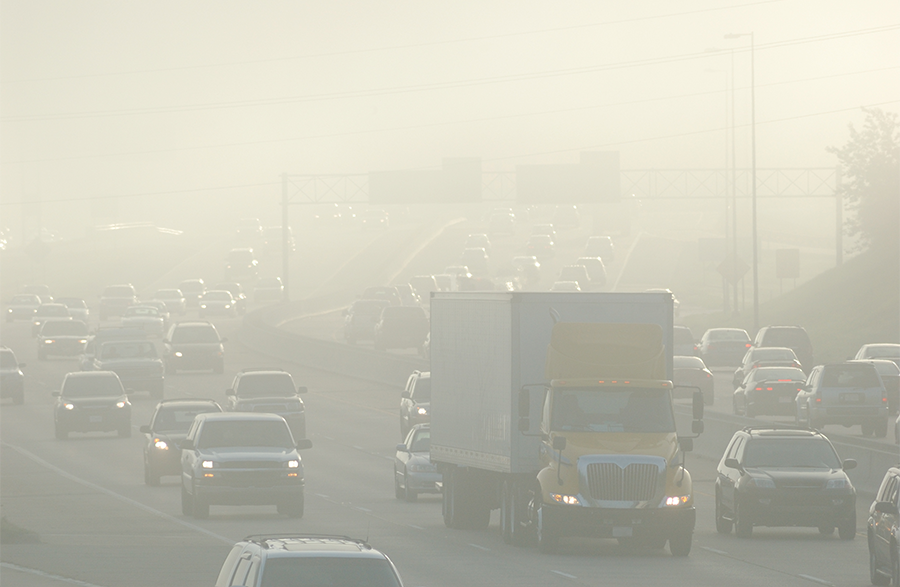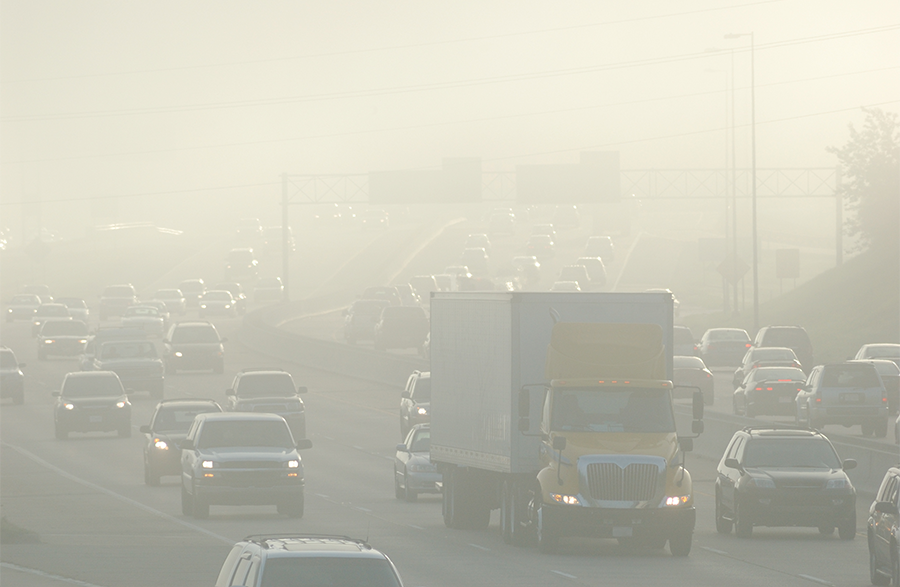Characterizing Childhood Air Pollution Exposure Effects on Long-Term Lung Health
Clients
University of Southern California (USC) Keck School of Medicine
Exposure to air pollution during childhood can have long-term repercussions on lung health, new research reveals. Sonoma Technology scientists <a href="/staff?staffName=Frederick-W.-Lurmann">Fred Lurmann</a href> and <a href="/staff?staffName=Nathan-R.-Pavlovic">Nathan Pavlovic</a href>, in partnership with researchers at USC’s Keck School of Medicine, have shown that children exposed to air pollution are more likely to experience bronchitis-like symptoms as adults. These <a href="https://www.atsjournals.org/doi/10.1164/rccm.202308-1484OC" target="_blank">results were recently published</a href> in the <i>American Journal of Respiratory and Critical Care Medicine</i> and suggest a direct link between childhood air pollution exposure and adult lung health.<br>
The team studied over 1,300 individuals and found that childhood exposure to nitrogen dioxide (NO<sub>2</sub>, a byproduct of combustion) and particulate matter smaller than 10 microns (PM<sub>10</sub>) was associated with an increased risk of bronchitic symptoms—for example, bronchitis, cough, or phlegm—in adulthood. That association held true even when the researchers accounted for some of the participants having had asthma as children. Breathing polluted air has long-term negative health effects, and these findings spotlight the importance of reducing air pollution. <br>
Mr. Lurmann and Mr. Pavlovic characterized the long-term air pollution exposure of the study participants, which was used by epidemiologists at USC to study the effects of the exposure. This work was completed at Sonoma Technology with funding from the National Institutes of Health (NIH) Environmental Influences on Child Health Outcomes (ECHO) Program and builds on <a href="/projects/4241">decades of work by Mr. Lurmann</a href> and collaborators to understand the health effects of air pollution as part of <a href="https://healthstudy.usc.edu" target="_blank">the Children’s Health Study</a href>.
The team studied over 1,300 individuals and found that childhood exposure to nitrogen dioxide (NO<sub>2</sub>, a byproduct of combustion) and particulate matter smaller than 10 microns (PM<sub>10</sub>) was associated with an increased risk of bronchitic symptoms—for example, bronchitis, cough, or phlegm—in adulthood. That association held true even when the researchers accounted for some of the participants having had asthma as children. Breathing polluted air has long-term negative health effects, and these findings spotlight the importance of reducing air pollution. <br>
Mr. Lurmann and Mr. Pavlovic characterized the long-term air pollution exposure of the study participants, which was used by epidemiologists at USC to study the effects of the exposure. This work was completed at Sonoma Technology with funding from the National Institutes of Health (NIH) Environmental Influences on Child Health Outcomes (ECHO) Program and builds on <a href="/projects/4241">decades of work by Mr. Lurmann</a href> and collaborators to understand the health effects of air pollution as part of <a href="https://healthstudy.usc.edu" target="_blank">the Children’s Health Study</a href>.
Air Quality
Applied Research
Emissions
Health


Nathan R. Pavlovic

Nathan
R.
Pavlovic
Lead Geospatial Data Scientist / Group Manager, Geospatial Data Science / R Resource Coordinator
npavlovic@sonomatech.com
/sites/default/files/2025-03/NRPres.pdf
